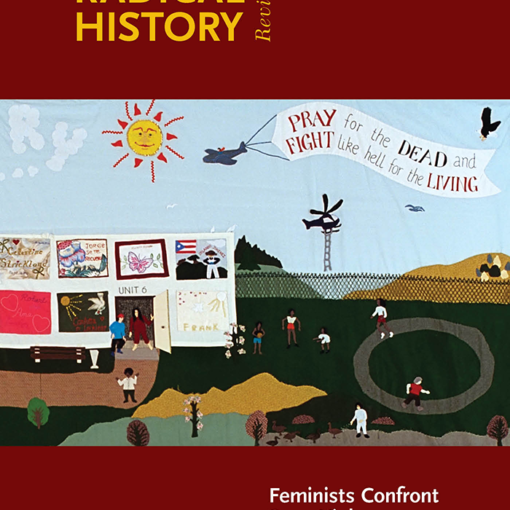CLICK HERE for the table of contents and links to full text.
The Political Lives of Infrastructure
Contributions to this issue of Radical History Review seek to expand taken-for-granted understandings of how infrastructure has historically served as the spatial backbone for building and reproducing various imperial, settler colonial, and racial capitalist regimes of power and rule. They explore how historically oriented scholarship can foreground radical politics organized around and through infrastructure across multiple spatial and temporal scales.
Roundtable I
Deborah Cowen and Laleh Khalili have a lively conversation about infrastructure’s radical possibilities and highlight the forms of labor, protest, and “making do” that are shaped by and in infrastructure’s long shadows.
Political Lives in the Shadow of Infrastructure
Robin McDowell on African American burials and the Bonnet Carré Spillway in New Orleans. Ann Ngoc Tran on the radical politics of soap and hygiene in the American war in Southeast Asia. Yuan Gao on the aesthetic of infrastructural labor in midcentury Chinese film and theater.
Curated Spaces
An image-essay by the documentary filmmaker Solveig Qu Suess weaves a story of optical infrastructures into the history of a mother-daughter relationship, highlighting the tensions between memory and its images, belonging and statecraft.
The Sinews of Infrastructural Power
Yingchuan Yang on the diverse politics of radio infrastructure in socialist China. Jason Tuấn Vũ on aviation infrastructures and settler carcerality in the modern transpacific. Desiree Valadares on the politics of route making and route marking along a Canadian highway.
Roundtable II
Rachel Herzing and Dean Spade, in conversation with Bench Ansfield, close out the issue with a rich exploration of transformative justice and abolition infrastructures.





